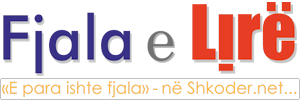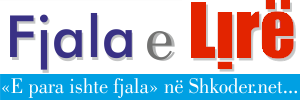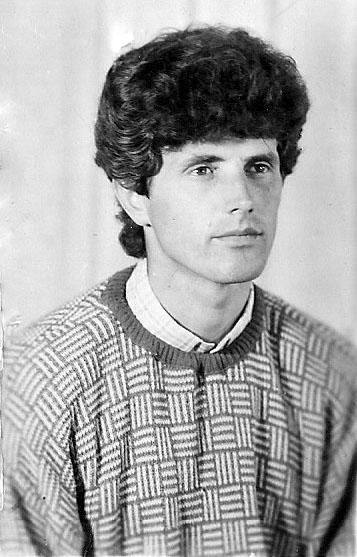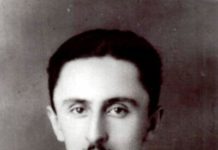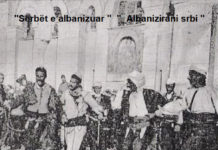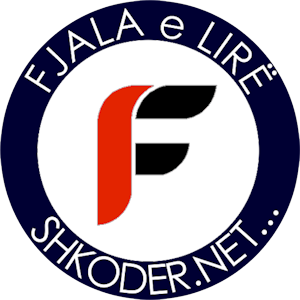Fotoja e parë që bëri Gjeka ditën kur u botua poezia Kuajt në gazetën Drita
Ps. The first photo was taken on the day the poem “Horses” was published: August 19, 1990 (probably the happiest day of my professional life)
Ka shumë mënyra për të kuptuar botën. Mund të ketë mënyra logjike dhe bindjeje, por ka mënyra për ta provuar botën përmes metaforave poetike. Lexoni botën e rrezikuar dhe të rrezikshme të “Kuajve” nga Gjeke Marinaj… – kështu e fillon shkrimin e saj prof. Kooseul Kim nga University Hyupsung, e cila ka shkruar një shkrim në lidhje me poezinë Kuajt, të cilët e ka botuar në gazetën koreane, “Kyunggi”. Ky sqarim bëhet nga Gjekë Marinaj në FB-në e tij, ku edhe na sjellë artikullin e përkthyer në anglisht, si më poshtë:

Gjeke Marinaj in FB
The luckiest poet alive is not the one who wins the Nobel Prize in literature but rather the one whose poems remain relevant for the betterment of humankind. In that sense, I feel extremely lucky that my signature poem “Horses” is still a source of inspiration for many people around the world, especially in some countries where peace, freedom, and democracy are still merely a forbidden dream.
Today I would like to share with you a very interesting article by Professor Kooseul Kim published recently in ‘Kyunggi’, a leading Korean newspaper, titled “We keep quiet,” READ THE WORLD IN IRONY. The article was translated into English by Prof. David Leitnick. The poem “Horses” was translated into English by Prof. Frederick Turner. I would like to thank all three contributing Professors: Kim, Turner, and Leitnick for making this article possible… And everyone who risked their lives by helping me get this poem published in Gazeta Drita in the 1990’s Albania, Including Rudolf Marku, Zija Cela, Ndoc Gjetja, Nasi Lera, Skënder Buçpapaj… Thank you for being here. Enjoy.
The Second photo (standing up) was taken only minutes before fleeing Albania… September 11, 1990 (probably the saddest and most difficult day of my personal life).
 Shkrimi në gazetën koreane dhe poezia Kuajt…
Shkrimi në gazetën koreane dhe poezia Kuajt…
“We keep quiet, “READ THE WORLD IN IRONY”
By Kooseul Kim, Emeritus Professor, Hyupsung University
There are many ways to understand the world. There may be ways of logic and persuasion, but there are ways of experiencing the world through poetic metaphors. Read the endangered and dangerous world of “Horses” by Gjeke Marinaj:
HORSES
Gjeke Marinaj
Through all our lives we are on the go,
Looking always forward,
What’s behind we’re afraid to know.
All of us are nameless,
Horses, that is what we are called.
No weeping,
No laughing,
Silence,
Listen,
Eat what we are given,
Go where we are told,
And none of us is clever-skulled.
He who was a king’s horse
Higher rank would hold;
He who was a princess’s
Saddled was with gold;
He who was a farmer’s
Saddled was with straw;
He who disobeyed them
Slept always out-of-door:
But with the humans, horses we remain!
—Translated by Frederick Turner
This poem of 21 lines indicts the communism of 1990 Albania. Not only did the 25-year-old Marinaj’s poem voice the frustration of the whole country, it also provoked a historical event that crossed the Albanian border. The work has already been translated into over 40 languages and has a wide range of readers. His unique Theory of Protonism, promoting peace and humanity and a reflection of his deep interest in the Balkans, has made him known not only as one of the world’s greatest poets but also one of today’s most celebrated literary theorists. The poetic metaphor of Albanian reality under the dictatorship of that time also reflects on our reality today. Horses are versatile. In Greek mythology, the horse, which pulls a chariot, is a symbol of energy flying in the sky. However, the horse in our contemporary reality is a symbol of service and sacrifice that toils silently for its owner.
 Shkrimi në gazetën koreane dhe poezia Kuajt…
Shkrimi në gazetën koreane dhe poezia Kuajt…
In this poem, ‘말’ should not look backwards but only look ahead. Like a prisoner in chains in the allegory of Plato’s cave, he does not see reality but only looks at the shadowy world. Humans with free will try to understand the world from a variety of perspectives, looking forward and backward. However, horses have no free will and are like cursed prisoners. The lack of free-will means to negate their human existence. “Free-will” becomes just one of many terms that lose impact and meaning in the power structure. Under totalitarianism, human beings become horses. These metaphors for the human condition cannot laugh, cry, or speak–only eat and take commands and keep silent. They are a herd of dumb beasts.
Interestingly, there is a hierarchy in the world of horses. The king’s horse is likely to fly high in the sky like a myth, but it is still just a horse. The horses of the princess and the horses of the farmer are also different from each other in terms of saddles. But horses that don’t listen to words, that do not comply and obey orders, are expelled, regardless of their position. This describes the reality of non-compliant Albanians who were exiled under communist rule, as was the poet who wrote this poem.
 Gazeta Drita, ku u botua për herë të parë poezia Kuajt…
Gazeta Drita, ku u botua për herë të parë poezia Kuajt…
“But with the humans, horses we remain!” The irony is a rhetorical device that recognizes how some recognize the reality of the situation and try to overcome it. Think of those who skillfully advocate totalitarianism and try to cover its secrets. Yes, they gain some power, but they remain as horses, not humans. Is it safe to try to tame humans like metaphorical horses with their superior strength? These advocates also have to answer to someone, are also tamed and put to work by superiors in the power structure. When their desire to run at infinite speed is maximized, they are forced to fall back with the other horses, which they firmly believe they have tamed and subjugated. They will be the victims those even more powerful than they are unless they awaken their subordinates to their own power and join them. As humans who face the same fate as the horses they control, these lower-level advocates have no choice but to join their horses whom they govern.
 Cikël me poezi nga Gjekë Marinaj, ku gjendet mes tyre edhe poezia Kuajt…
Cikël me poezi nga Gjekë Marinaj, ku gjendet mes tyre edhe poezia Kuajt…
This is a poem where you can feel the power of dramatic irony that goes against expectations.
We appreciate the prophetic voice of “Horses” for the way it illuminates the anatomy of absolute power across all time.
